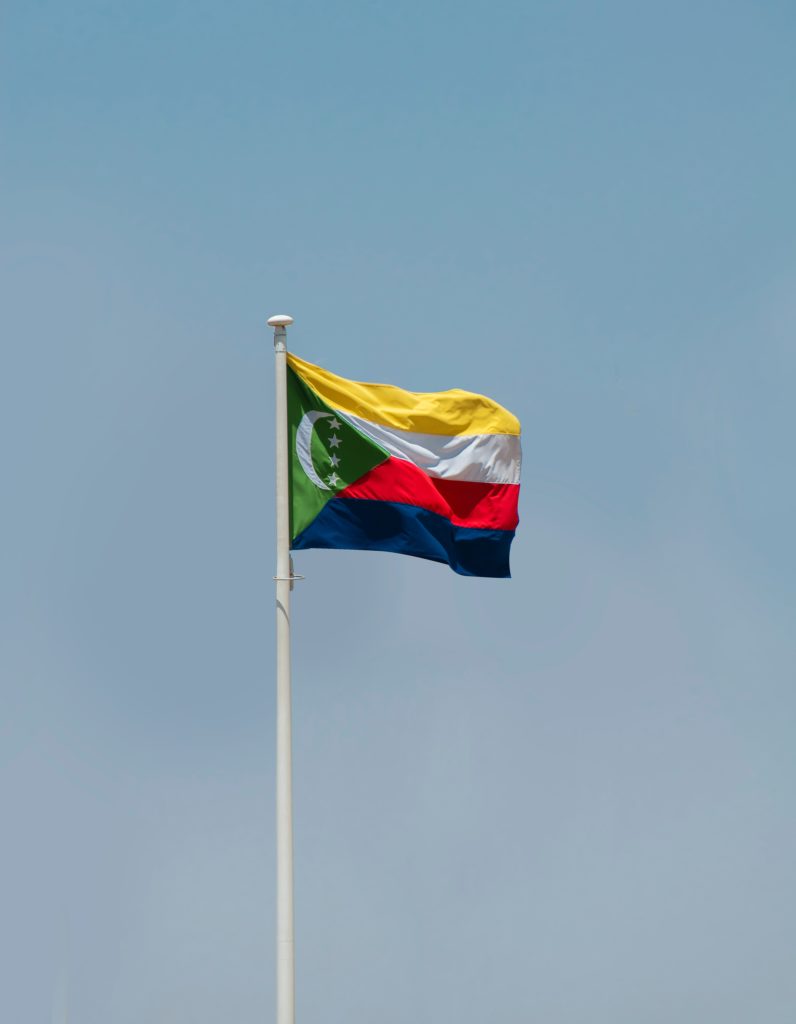Comoros (commonly known as Comoros) went through a difficult start as an independent state as political instability held back their development. The government is creating a legal framework designed to attract foreign investment in agriculture, fisheries, and especially tourism (an industry with great potential in this largely untouched group of tropical islands). In addition, the Economic Citizenship Program, allows foreign investors to obtain Comorian citizenship in exchange for a commitment to invest in the country.
The land is a branch of the Organization of the Islamic Conference, the League of Arab States, and the Indian Ocean Commission.

Legal framework
Comoros has a mixed legal system consisting of the 1975 French civil code, Sharia (Islamic law), and customary law. It is important to note that it is a member state of the common legal space known as the Organization for the Harmonization of Commercial Law in Africa (commonly referred to as the French acronym OHADA).
The aim of OHADA, created by the agreement in 1993, was to harmonize certain aspects of the legal framework of the West and Central African countries, the currency of which is the CFA franc. Including Comoros, OHADA currently has 17 members: Benin, Burkina Faso, Cameroon, Central African Republic, Chad, Republic of the Congo, Equatorial Guinea, Gabon, Guinea, Guinea-Bissau, Côte d’Ivoire, Mali, Niger, Senegal, Togo, and the Democratic Republic of the Congo.
OHADA member states – following transitional measures – are obliged to adopt uniform acts that have a direct effect and replace national laws. Nine uniform acts are common commercial law; commercial companies and economic interest groups; organization of security interests; organization of simplified collection procedures and enforcement measures; organization of collective productions to pay off debts; arbitration; organization and harmonization of enterprise accounting systems; contracts for the carriage of goods by road and cooperative enterprises.
A supranational court known as the General Court of Justice and Arbitration has been established to enforce and promote a consistent interpretation of uniform laws.
Comoros: internal taxation
- Internal corporate taxation
Taxation in Comoros is based on the French tax policy. Nevertheless, taxes are complicated and tax charges are quite high-priced.
According to the General Tax Code, corporate tax is applied to income derived from Comoros at a rate of 35%. If the company’s turnover exceeds 500 million KMF, the corporate tax rate is 50%.
Annual tax on the rental value of the real estate; The rates are set at 20% for farms and 30% for industrial and commercial facilities. There is also a tax per hectare of agricultural land for up to 10,000 KMF, the tax rate depends on the type of land use.
Import tariffs are applied to various goods entering Comoros at rates up to 30%.
- Individual taxation
Individual income is taxed at a progressive rate of up to 30 percent, which applies to income over KMF 3.5 million. The tax is not paid on income up to KMF 150,000. All individuals with a permanent place of work in Comoros are subject to individual taxation. Private entrepreneurs are subject to corporate tax. There is also a capital gains tax of 15%.
There are several real estate taxes. Real estate registration taxes are levied at 2% on the value of title deeds and mortgages and 1% on the total value of rent. Real estate transfer tax is levied at a rate of 2-9% of the sale price, depending on the type of property.
The annual tax on the rental value of the real estate is 20% for residential units. Capital profits from the actual property are taxed at a flat rate of 20%.
There is a consumption tax at the standard rate of 10%. There are two reduced rates: electricity and telephony and banking (5%); water supply, private school fees, and flights between islands (3%). The rate is zero for necessities.
Comoros: Law of Offshore
In an attempt to improve the Comoros business environment, increase foreign investment and create jobs, a new investment code was adopted in 2007, which is more liberal and attractive than the previous one. It provides investors with a favorable legal framework, free movement of capital and profits, and equal rights for foreign and domestic investors. The National Investment Promotion Agency, Invest in Comoros, is the central institution that liaises with investors following the code. Its role is to mediate between the state and investors, conduct business registration procedures and issue special permits.
The Investment Code also affords tax motivations for authorized investors, including the following:
- exemption from customs duties and taxes on imported materials and equipment intended for use in an investment project;
- the possibility of a significant reduction in corporate tax in an amount corresponding to the amount spent by the investor.
These tax credits are available for seven years with an investment of at least 5 million KMF. However, they are extended up to 10 years with funding exceeding 100 million KMF.







